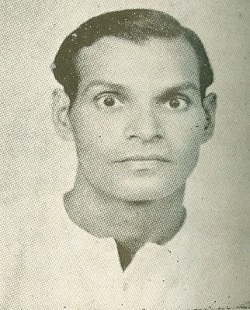Jaidev Kapoor: Remembering a Revolutionary on His Death Anniversary
By Amit Kumar

Jaidev Kapoor, a steadfast participant in India’s independence movement, is remembered today, September 19, on the anniversary of his passing. Born on October 24, 1908, in Hardoi, Uttar Pradesh, Kapoor’s life was marked by unwavering dedication to the cause of freedom from British colonial rule.
Kapoor became involved in the independence struggle as a young man after joining the Hindustan Republican Association (HRA), later the Hindustan Socialist Republican Association (HSRA). He worked closely with prominent revolutionaries such as Chandra Shekhar Azad and Bhagat Singh. While studying at D.A.V. College in Kanpur and later at Banaras Hindu University, Kapoor was responsible for expanding the revolutionary network in Banaras, providing shelter and support to fellow activists.
He played a significant role in the planning of the Central Assembly bombing in Delhi in 1929. Kapoor was instrumental in procuring materials and assisting the entry of Bhagat Singh and Batukeshwar Dutt into the assembly, where they carried out a protest against the Trade Dispute Bill and Public Safety Bill. The incident aimed to draw attention to the cause without intent to harm and galvanized public support for Indian self-rule.
Following his arrest, Kapoor was sentenced to life imprisonment and deported to the Cellular Jail in the Andaman and Nicobar Islands, where he spent 16 years. During his sentence, Kapoor participated in hunger strikes demanding fair treatment for political prisoners. He was released prior to independence and continued to live a life dedicated to the values for which he struggled.
Jaidev Kapoor died on September 19, 1994. His contributions to the freedom movement remain an important example of courage and selflessness. On his death anniversary, the nation pays tribute to his memory, reaffirming gratitude for those who sacrificed for India’s independence.
